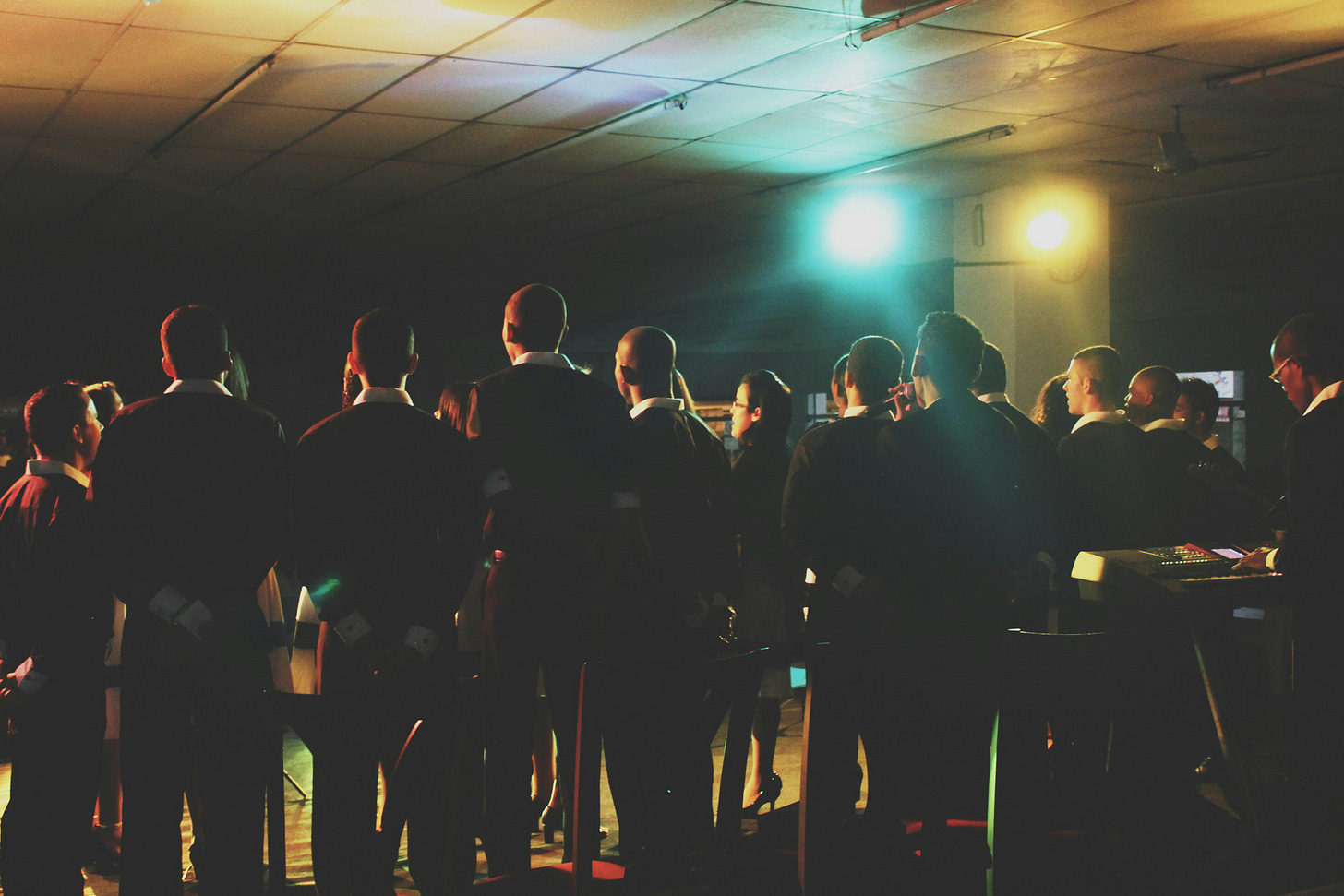Why we need institutions

Do you ever think about the marvel of a choir?
Imagine how a choir begins.
Somebody long ago liked to sing. That person ran into another person that liked to sing. They said, “Hey, what if we sang together?”
And they did, and it sounded pretty good. So they sang together some more. Pretty soon somebody else joined. Soon there were four, five, maybe eight and twenty.
They figured they could sing different parts. By leaning into the differences in their voices, they created harmonies that sounded even better than unison. They created some specialized roles—somebody stood in front to listen and keep time, somebody planned out the tunes and harmonies, somebody wrote down a plan for next time.
They figured out rules and systems to make singing more efficient. They learned musical notation to record their favorite tunes. Maybe they chose a day of the week to get together. They started to sound so good that people came to listen, so they planned times for that, too.
As the original singers grew old, new folks joined. The choir lived on beyond the lifespan of any single member. The choir was flexible and durable—it shifted with the ideas and temperaments of new situations, while retaining old systems from one generation to the next.
Of course the choir had some troubles, too. Maybe there were bossy singers who wanted all the solos, or lousy singers wrecking the harmonies, years when it was hard to recruit singers, and expenses like rent for a building to sing in. But with the right combination of resilience and ingenuity, this choir thing persisted to this very day.
Why all this talk of choirs?
Well, first of all because I’m the beneficiary of a community choir that began making music 31 years before I was born.
When I joined nine months ago, I didn’t know anybody. We sing music by composers I’ve never met, for crowds of people I may never see again. But because of all these systems designed by enumerable people who came before, last week we melded our voices on a stage and magic happened. Feet tapped. Tears fell. Smiles spread. We all breathed in unison.
This all works because a choir is an institution. That is, it’s a human-made combination of rules and roles that guide people’s interactions together.
Humans are institution-making beings. We sustain our lives and the goodness within it through institutions. An institution can be as common as a family or as complicated as a supply chain making hearing aids.
An institution makes possible what no individual can do alone. Institutions are more than the sum of their parts. They carry memory, wisdom, and hope. They get stuff done.
Institutions aren’t inherently good or bad. They multiply the capacity of humans to do either. Plenty of institutions are wasteful or downright wicked.
But let’s not forget that institutions, like humans, have the capacity for glory.
Folks, you know where I’m going with this. Right now we are witnessing a genocide of institutions. We’re facing the death of institutions that help kids deal with trauma and find foster families, institutions that prevent us from being killed by our food, our air, our weather, and our wars.
Here’s just one example of thousands. Milwaukee just had a lead poisoning emergency, so they contacted The Centers for Disease Control to find an expert on lead poisoning. They learned that there are no longer any lead poisoning experts at the CDC anymore. They've all been fired. (I heard this example in this podcast, which adds more perspective.)
When we burn up our institutions, we burn up human capacity. Institutions take so much longer to build than to destroy. We need to stand together to stop the slaughter of institutions.
But there’s more happening now than institutional death. Let’s not forget the institutions that live on and the vitality found there.
We are still surrounded by institutions alive and kicking. They need you and me to show up.
Folks, we have Rotary clubs. Crafting clubs. Libraries. Leagues of women voters. Professional guilds. PTAs. Neighborhood potlucks. Food pantries. Town halls. School boards. Unions. Think tanks. Scholarship funds. Party planning committees. Volunteer fire departments. The NAACP. Immigrant advocates. Climate advocates. Mosques. Musicals.
The choirs are still singing.
These institutions need members to join in the work and the joy of institutional life. We need to preserve, revise, and dream together so we can gift future generations a better life.
We’re going to need singers who find each other in the dark and carry a melody that is bigger than any one of us. We’re going to need to breath in unison.
This article is part of series on proven, effective ways to pursue justice for the long haul. We’re going to need perseverance, strategy, accomplices, humility, tears, and a lot of other things. That’s why I decided to call this series “What we still need.” Read more posts in this series here.



